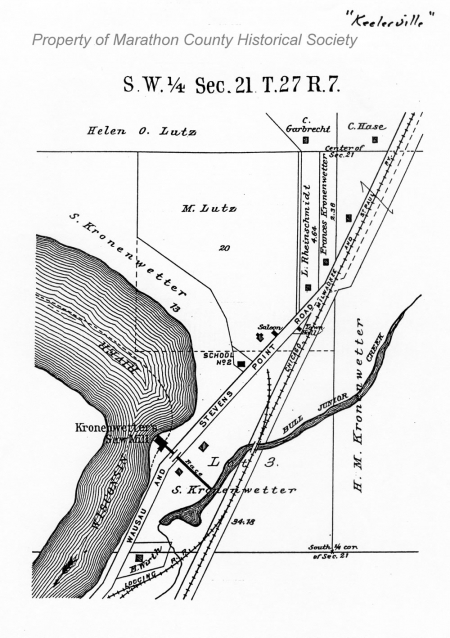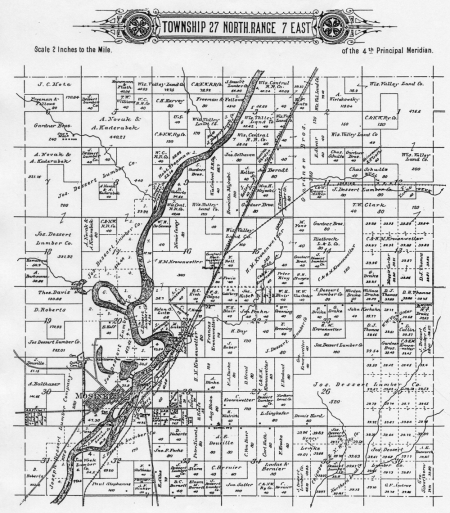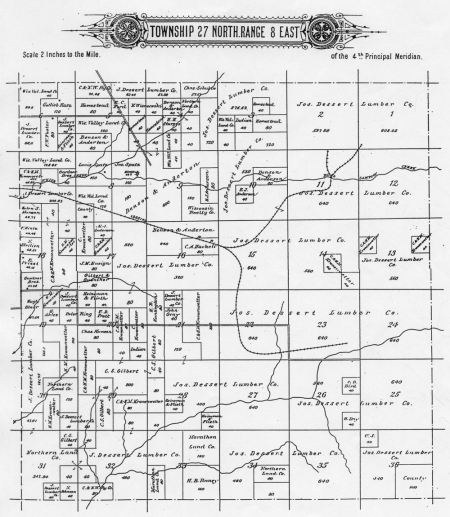Search our Places Database
Keelerville, Settlement of
Return To List of Locations | Back to Search
For more information on this location, please contact our research library.

Author:
Mary Moltzan
Location:
T. 27 N. - R. 7 E., Sec. 21, Township of Kronenwetter
Founded:
c 1855.
Background:
In the early pinery days, an enterprising Native American named Keeler dug a short canal to re-route Bull Jr. Creek, so it would go over a drop and power a small sawmill he built. Other buildings sprouted up nearby and the hamlet became known as Keelerville. Sebastian Kronenwetter came to the area in 1857. After other business ventures, he purchased the sawmill at Keelerville and it became quite successful. The area then became known as Kronenwetter. See Township of Kronenwetter
Railroad:
The Chicago, Milwaukee & St. Paul RR on its present route along Old Hwy. 51.
Schools:
School District #2.
Business:
Saloon - owned by Aaron Forbes
Industry:
Sawmill
Stories:
Coming to America in 1846, the Kronenwetter family (Sebastian's parents, etc.) settled in Pennsylvania. Sebastian spent his teen years in St. Mary's, growing up and working in the Pennsylvania pineries. It was there that he apparently met and certainly married another immigrant, Mary de Biri, from France. At the time of their marriage, Sebastian was in his early twenties and Mary wasn't far behind.
In 1857, they moved to Wisconsin and set up a boarding house in Little Bull Falls (now Mosinee). From there, they moved to Wausau. In 1870, after some business ventures, Sebastian had saved enough money to purchase a small mill in what was then called Kellerville. He would run it until his death on April 27, 1902.
Mary and Sebastian had nine children, two of whom died in infancy.
Mary Kronenwetter survived Sebastian. Her 82nd birthday party was written up in an article in a Wausau paper in 1916. She was described in that article as "the last survivor of the old settlers". Seventy years later, she would be remembered by one of her granddaughters as a heavy little woman, who expected her children and grandchildren to do things her way in her house, and who still talked mostly in French, even after more than half-a-century in her new country.



